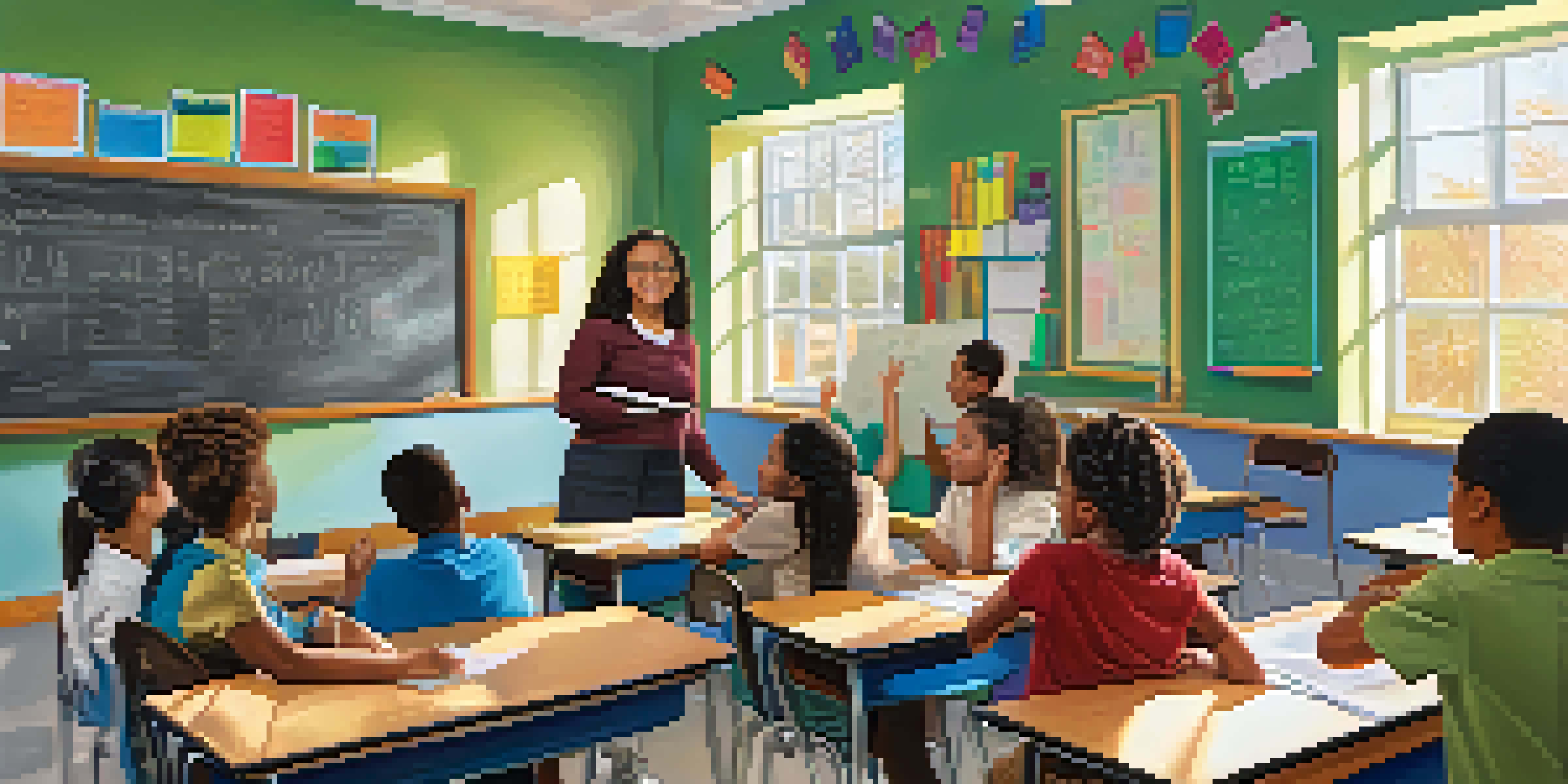Tennessee's Public vs. Private Schools: Key Differences

Overview of Public Schools in Tennessee
Public schools in Tennessee are funded primarily through state and local taxes, making them accessible to all students. This means that education is provided at no cost to parents, which is a huge benefit for many families. Public schools follow a standardized curriculum set by the state, ensuring a consistent education across the board. With a focus on inclusivity, they must accommodate students from various backgrounds and learning abilities.
Overview of Private Schools in Tennessee
Private schools in Tennessee operate independently of the state education system and rely on tuition fees and private funding. This allows them to create specialized programs and curricula that may not be available in public schools. However, the cost of tuition can be a barrier for many families, making private education less accessible. Additionally, private schools often have smaller class sizes, which can lead to more personalized attention for students.
Public Schools: Funding and Access
Public schools in Tennessee provide tuition-free education funded by state and local taxes, making them accessible to all families.
Curriculum Differences: Public vs. Private
One of the most significant differences between public and private schools lies in their curricula. Public schools must adhere to state guidelines, covering essential subjects and standardized testing requirements. In contrast, private schools have the freedom to design their own curriculum, often emphasizing specific educational philosophies or religious teachings. This flexibility can attract families looking for a particular approach to education that aligns with their values.
Teacher Qualifications and Class Sizes
In Tennessee, public school teachers are required to meet specific state certification criteria, ensuring a baseline of qualifications. This often includes holding a degree in education and passing state exams. Private schools, however, have the freedom to set their own hiring standards, which can lead to varied qualifications among teachers. Additionally, private schools frequently boast smaller class sizes, allowing for more individualized attention and potentially enriching the learning experience.
Private Schools: Flexibility in Education
Private schools in Tennessee offer specialized curricula and smaller class sizes, but they come with tuition costs that can limit accessibility.
Extracurricular Activities Offered
Extracurricular activities play a significant role in student development, and both public and private schools offer a range of options. Public schools typically provide a variety of sports, clubs, and arts programs funded by the district. On the other hand, private schools often have more flexibility in their offerings, allowing them to create unique programs that cater to student interests. This can include specialized arts programs, advanced sports training, or unique clubs that may not be available in public schools.
Diversity and Student Demographics
Public schools in Tennessee tend to reflect the diversity of the communities they serve, with students from various backgrounds and cultures. This diversity can enrich the learning environment, promoting understanding and acceptance among students. Private schools, however, may have less diversity due to their selective admission processes and tuition costs. Families seeking a diverse educational experience should consider how the demographics of each type of school align with their values.
Choosing the Right Educational Fit
Selecting between public and private schooling involves evaluating your child's needs, family values, and financial situation.
Cost Considerations: Tuition and Fees
When considering education options, the cost is often a primary concern for families. Public schools are tuition-free, funded by taxpayer dollars, which makes them an attractive option for many. Conversely, private schools charge tuition, which can vary significantly, often requiring additional fees for activities and materials. Families must weigh the financial implications of each option, considering both immediate costs and long-term investment in their child's education.
Making the Right Choice for Your Family
Choosing between public and private school is a personal decision that depends on various factors unique to each family. It's essential to consider your child's individual needs, your educational philosophies, and your financial situation. Visiting schools, talking to other parents, and reviewing school performance can provide valuable insight. Ultimately, the best choice is one that aligns with your family's values and supports your child's growth and learning.